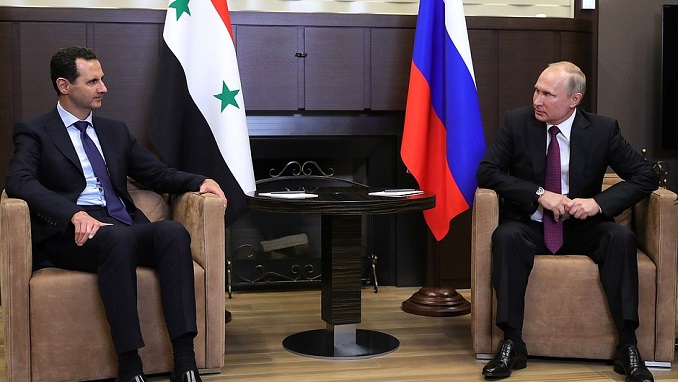Russia has established a bigger role in the Middle East through its intervention in Syria on behalf of the Bashar Al Assad regime and is now seeking to benefit from reconstruction projects once stability and peace is achieved, analysts told Gulf News.
Experts say Moscow is expected to boost its military presence in Syria at a time when regional alliances are being reshaped.
“When stability finally comes, real possibilities for mutually beneficial trade and economic cooperation will emerge. And instead of funding military operations, we will be able to invest in peaceful reconstruction and improvement of the humanitarian situation. To spend the money for peace, not for war,” said Igor Matveev, an expert in the Middle East and Syria with an academic and diplomatic background from Moscow State Institute of International Relations (MGIMO-University) in Russia.
Matveev, who used to head the economic division at the Russian embassy in Damascus and author of many books on Syria, stressed in an interview with Gulf News that “it is natural to think about possible investments, and not only in G2G (Government to Government) format, but also with the participation of the Russian private sector. To analyze how to invest, how to get the money back and how to gain rational commercial profits. However, another very important task of Russia’s participation in re-building Syria is to assist in bringing stability and ensuring the true revival of socioeconomic life.”
According to a recent Foreign Policy report, Russia had “achieved most of its short and medium term goals in Syria” after nearly four years of military intervention in the country. It said “growing number of signs suggest Moscow is now shifting focus to another objective: The Kremlin would like Syria to provide it a financial windfall.” Moscow eyes a large chunk of the estimated $350 billion needed for reconstruction in Syria, and this would help Russia’s efforts to diversify its sources.
However, the problem is not who is going to benefit and how, the issue is where the funds will come from, analysts say.
Russia, said Matveev, can “play a certain role in bringing” both Damascus and the Kurds, who control many areas rich in natural resources and who are supported by the U.S., to the table to conduct a “mutually beneficial economic dialogue”.
According to Mohammad Fayez, a researcher in Russian affairs at the Cairo-based Al-Ahram Center for Political and Strategic Studies, rebuilding Syria constitutes an important strategic dimension for Moscow. Fayez said Russia has many options to fulfil its goal of “boosting its strategic gains from Syria” including gas exploration and seeking funds from China, which has huge foreign reserves and several financing institutions.
“China, also, has a big interest in being present in Syria,” Fayez said.
“Beijing seems to be still formulating its approaches, analyzing prospects and modalities for Syria’s incorporation into the ambitious Chinese ‘One Belt, One Road’ project,” said Matveev.












